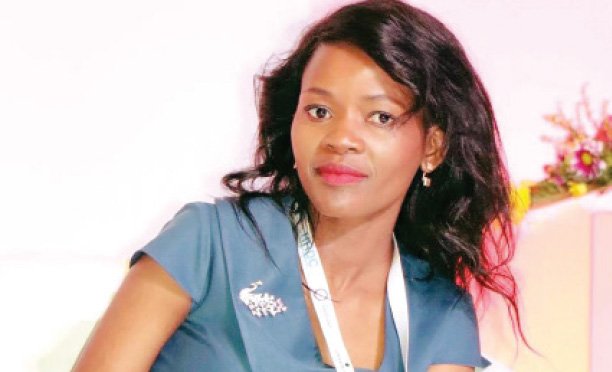BATTLE OF THE DOCTORS
A few days after she was confirmed as the Umbrella for Democratic Change (UDC) Parliamentary candidate for Gaborone Central, Dr Mpho Pheko is ready for what could be a fiery race of the intelligentsia.
This is a constituency that was won from the Botswana Congress Party (BCP) president Dumelang Saleshando in 2014, by Dr Phenyo Butale who was then representing the UDC. Dr Butale has since decamped to the Alliance for Progressives (AP) and he will be among the candidates vying for the constituency later this year at the general elections. A few weeks ago, there was brouhahaha when Dr Pheko, a member of the BCP, was announced as the constituency candidate, with many seeking to know who she was and her “claim to fame.”
By virtue of being female, she also had to contend with sexist jabs as well as questions clearly based on her gender. Some weeks back, things had heated up when after being announced then, the Gaborone mayor Kagiso Thutlwe publicly stated that Pheko was not representing the UDC in Gaborone Central as claimed. This attracted a barrage of criticism her way, with members of the BCP exchanging unpleasant words with their counterparts at the Botswana National Front (BNF).
The two parties are contracting partners in the UDC and Mayor Thutlwe is a BNF member who along with his party activists had wanted a candidate of their own in the constituency. The leadership of the two parties met to deliberate on the matter and following what was described as an amicable conclusion, she was allocated the Constituency. Last week there were many congratulatory messages and well wishes sent to her.
Now that the air has been cleared after the fracas, Pheko remains calm and graceful, evidently unperturbed by what could be regarded a “storm in a teacup” considering the long battle ahead for the hotly-contested Gaborone Central constitjuency. In an interview with The Midweek Sun this week, Pheko said she hopes to bring visionary, issue based, solution-orientated and clean outcome-based politics.
“Basically accountable leadership that recognises that MPs are given a five-year mandate and at the end of that period, they need to account to the people who voted them in,” she said. She said it is imperative for Batswana to introspect and figure out exactly what they want. “I wish Batswana could objectively evaluate the status of their personal lives, community lives, national development status and determine if they want to give the current government or those they have elected a renewed mandate,” she said.
She will subject herself to the same assessment in 2024, should she clinch the Parliamentary seat in the coming elections.“I have already committed to be a voice of the women, youth, education and community building,” she said. Pheko said that her political awakening was in 2008/2009, when the former president Ian Khama took over from Festus Mogae. “I believe that I am one of the Batswana who noticed or predicted then that his leadership style would not be suitable for the nation of Botswana.
At the time, I also realised that it was my civic responsibility to stop complaining about government and be part of a political home. I then applied for membership in the BCP – where I have been an activist.” Generally, in Botswana politics appear to be a hostile terrain for women. Pheko is however not naïve to the reality of politics. She is aware of how women are often undermined and discredited by virtue of their gender.
When asked on the supposed prevalence of sexual harrasment in political circles and the problem of women who supposedly date and sleep their way to the top in their political careers, she noted that it was a difficult issue to dissect particularly when one considers that it is birthed by several factors including socio-economic conditions, patriarchy and intimidation, the stereotypes about women in politics and pure propaganda aimed at discrediting women.
“It is a systematic problem – meaning that the solution ought to be scientific. Some solutions can be found in political education by civic society and political parties. Leaders ought to realise that they need to capacitate and facilitate women participation in both political and leadership roles.” Political funding is another key issue in politics and affects women more, because some of them might have the vision, skills and work ethic but lack the financial resources to fund their campaigns.
Pheko also noted that government should consider party funding if it is serious about being inclusive of women. She added that introducing quota systems and effective affirmative action could also shield women in politics from abuse. But the reality does not discourage her. “Beyond this, for now, as women, we will just need to toughen up.”




